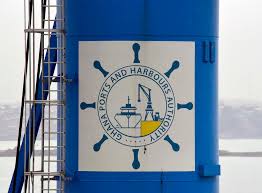
Audio By Carbonatix
The Ghana Ports and Harbours Authority (GPHA), says it was compelled to implement the revised tariff due to the current global economic challenges.
These include inflation and currency depreciation which GPHA says have increased its operational cost.
In a statement issued Thursday in reaction to concerns raised by the Ghana Union of Traders Association (GUTA), the GPHA also explained that as in all other increments in the past, “the rates of increment in this year's tariff adjustment were informed by the outcome of a comparative port tariffs studies we conducted in our neighbouring Ports of Lome and Abidjan, to ensure that at every given time, our ports will remain competitive in terms of price and quality of services.”
Consequently, it said “…even with the increment of 1st August 2023, overall, our port tariffs remain competitive compared to our neighbours.”
GUTA president, Dr. Joseph Obeng had protested the upwardly reviewed tariffs, saying it was “unfortunate and unacceptable” because it will overburden businesses. He therefore called for its suspension and a stakeholder engagement to ensure all outstanding issues are exhausted.
But the GPHA says its operations, like any other business, is affected by increases in the price of fuel, water, electricity, machinery and equipment among others, and “While we understand that tariff increment may have short term effect on businesses, it is essential to maintain a delicate balance between cost recovery and providing quality services.
The statement said the “GPHA is equally concerned about the low traffic volumes, but that is no reason for the Authority to operate at a loss,” after investing millions of dollars in upgrading port infrastructure”, and that a well maintained and efficient port system will in the long run contribute to a reduction in operational costs for businesses, enhance productivity and facilitate smoother trade operations.
Our investigation revealed that the decline in cargo volumes cannot be attributed to GPHA's service charges. GPHA's charges as a component of the total cost of cargo clearance in the port is about 6%. We are currently conducting a study on the individual contributors and their share to total cost of cargo clearance in our ports, so that together, we can engage and find possible solutions.
Below is the full statement issued by the GPHA.



Latest Stories
-
24-Hour Economy not just talk — Edudzi Tamakloe confirms sector-level implementation
3 minutes -
Four arrested over robbery attack on okada rider at Fomena
5 minutes -
NDC gov’t refusing to take responsibility for anything that affects Ghanaians – Miracles Aboagye
31 minutes -
Parental Presence, Not Just Provision: Why active involvement in children’s education matters
56 minutes -
24-Hour economy policy fails to create promised jobs – Dennis Miracles Aboagye
1 hour -
Ghana Embassy in Doha urges nationals to take shelter after missile attack
1 hour -
Government’s macroeconomic stability commendable, but we need focus on SME growth – Victoria Bright
2 hours -
Macro stability won’t matter without food self-sufficiency- Prof. Agyeman-Duah
2 hours -
How Virtual Security Africa is strengthening safety at Mamprobi Polyclinic
2 hours -
Ghana on right track macroeconomically, but structural gaps remain – Fred Dzanku
2 hours -
ADB MD honoured for impactful leadership at PMI Ghana engagement
2 hours -
Bringing Ofori-Atta’s photo to Parliament and displaying it was unfair – Afenyo-Markin
3 hours -
Minority leader calls 24-Hour economy policy more PR than practical solution
3 hours -
Afenyo-Markin accuses government of using anti-corruption drive to target opponents
3 hours -
GPL: Kotoko announce new board of directors
3 hours

